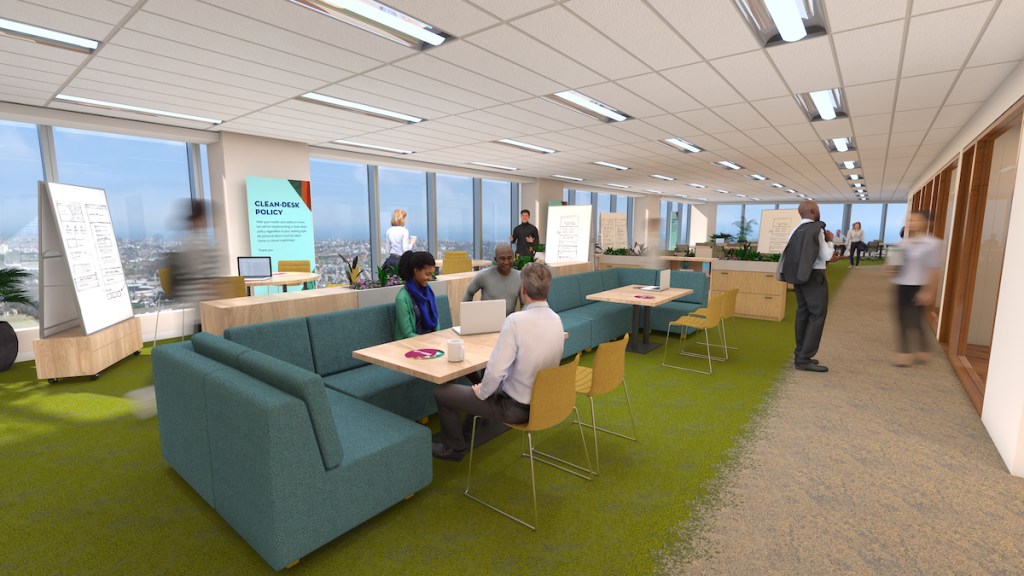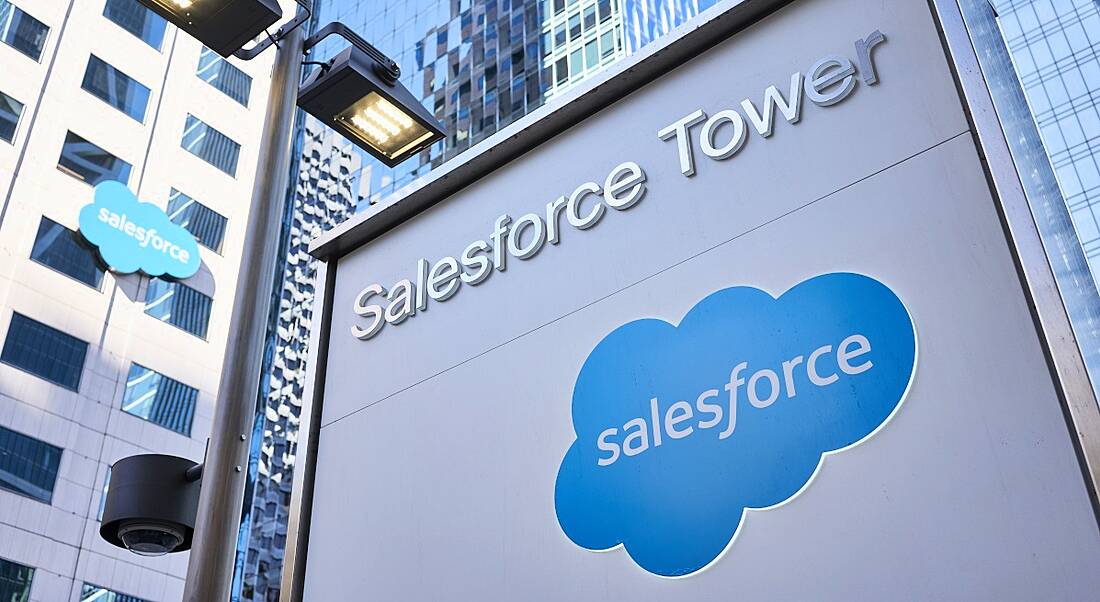The majority of Salesforce staff will follow a hybrid working model after the pandemic, attending the office between one and three days a week.
US software giant Salesforce has said most of its employees will be able to work remotely for part of the week after the pandemic.
Last August, Salesforce said the option to work from home would be extended until “at least 31 July 2021”. Now, the San Francisco-headquartered company is pulling back from its office-centric legacy and working towards greater flexibility for staff.
“As we enter a new year, we must continue to go forward with agility, creativity and a beginner’s mind – and that includes how we cultivate our culture,” Brent Hyder, president and chief people officer at Salesforce, said in a blog post on the company’s website.
“An immersive workspace is no longer limited to a desk in our Towers; the nine-to-five workday is dead and the employee experience is about more than ping-pong tables and snacks.
“As employers, we have an opportunity to create an even better workplace – one that allows us to be more connected to each other, find more balance between work and home and advance equality – ultimately leading to increased innovation and better business outcomes.”
Three ways to work for Salesforce staff
In response to company surveys, nearly half of Salesforce employees said they want to come into the office a few times a month and 80pc said they want the option of a physical workplace. So, in the future, employees will work in one of three ways.
Salesforce said that most employees will work in a flexible arrangement. After the pandemic, ‘flex’ employees will be in the office between one and three days a week for collaboration, customer meetings and presentations.
The remaining staff will be either fully remote or fully office-based. The remote option will be for people who don’t live near an office and don’t require a physical workplace, while the smallest cohort will work in the office full-time if they’re in a role that requires it.
“Our employees are the architects of this strategy and flexibility will be key going forward,” Hyder said.
“It’s our responsibility as employers to empower our people to get the job done during the schedule that works best for them and their teams, and provide flexible options to help make them even more productive.”
He added that greater flexibility will lend itself to greater equality. “Our talent strategy is no longer bound by barriers like location, so we can broaden our search beyond traditional city centres and welcome untapped talent from new communities and geographies.
“And creating more flexible schedules removes hurdles that may make it more difficult to be in the office daily – from picking up kids to caring for sick family members.”
Committing to the ‘office of the future’
For those employees that will be using office spaces, Hyder said Salesforce plans to prioritise a “more hybrid work style”.
“When we thought about how to reimagine our spaces, we saw an incredible opportunity to create the office of the future,” he said. This will include redesigning Salesforce offices as ‘community hubs’.
“Gone are the days of a sea of desks – we’ll create more collaboration and breakout spaces to foster the human connection that can’t be replicated remotely,” Hyder added.

Salesforce’s vision for its post-pandemic workplace. Image: Salesforce.
Health and safety will also be a “top priority”, with a task force already in place to explore vaccine management. “There will be new protocols like at-home wellness attestations and temperature screenings before entry (where applicable), face coverings, regular and frequent deep cleaning, manual contact tracing and more,” Hyder said.
“This isn’t just the future of work, this is the next evolution of our culture. We’re combining the strength of our values, our platform and our people to reimagine the way we work for the better – whether in-person or in the cloud.”
Salesforce has around 50,000 employees across its global offices. In 2019, it announced plans to significantly expand its Irish workforce with a new ‘Salesforce Tower’ in Dublin, which is still under construction.
Salesforce isn’t the first company to discuss permanent flexible working options for its staff after Covid-19. Revolut recently announced a long-term hybrid working strategy, with collaborative workspaces for teams in Dublin and other hubs. It follows similar remote and hybrid working plans from companies such as Dropbox, Indeed and Siemens.




